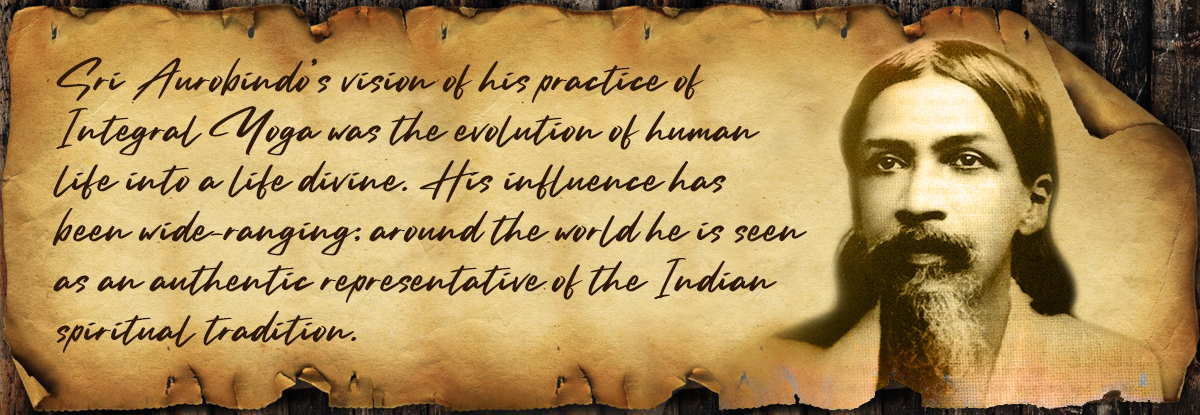SRI AUROBINDO
SRI AUROBINDO WAS BORN IN CALCUTTA ON AUGUST 15, 1872. IN 1879, AT THE AGE OF SEVEN, HE WAS TAKEN WITH HIS TWO ELDER BROTHERS TO ENGLAND TO STUDY AND LIVED THERE FOR FOURTEEN YEARS AS A PUCCA ENGLISHMAN
Born Aurobindo Ghose, Sri Aurobindo was a philosopher, linguist, yogi, maharishi, poet, journalist, and Indian nationalist. The young Aurobindo was brought up speaking English as his father Krishna Dhun Ghose believed British culture to be superior. Aurobindo and his two elder siblings were sent to the Loreto House boarding school, run by Irish nuns, in Darjeeling, which was a centre of Anglo-Indians in India.
Krishna Dhun Ghose wanted his sons to enter the Indian Civil Service (ICS). For this, it would be necessary to send them to study in England. It was there that the family moved in 1879. To become an ICS official, students had to pass the competitive examination, as well as study at an English university for two years. Aurobindo secured a scholarship at King’s College, Cambridge, and passed the written examination after a few months. Having no real interest in the ICS, he purposely was late for the horse-riding practical exam and got himself disqualified for the service.
At this time, the Maharaja of Baroda, Sayajirao Gaekwad III, was in London. Aurobindo met with him, secured a place for himself in the Baroda State Service and left England for India, arriving here in February 1893.
In Baroda, Aurobindo worked in the Survey and Settlements department, moving to the Department of Revenue and then to the Secretariat, taught grammar and helped write the Maharaja of Gaekwad‘s speeches until 1897, when he began working as a part-time French teacher at Baroda College. He was later promoted to vice-principal. He spent 13 years, from 1893 to 1906 in Baroda, the latter years of this period spent on leave in silent political activity, for he was debarred from public action by his position at Baroda.
Aurobindo finally arrived back in Bengal in May 1908, and became increasingly involved in nationalist politics in the Indian National Congress and the nascent revolutionary movement in Bengal with the Anushilan Samiti. He was arrested and faced charges of treason for the Alipore Conspiracy. However, he could only be convicted and imprisoned for writing articles against British colonial rule in India and was released for lack of evidence.
During his time in jail as an under trial, he began to explore the mystical and spiritual. In February 1910, he withdrew to a secret retirement at Chandernagore and in the beginning of April sailed for Pondicherry. He eventually cut connections with politics and devoted his life to his spiritual work, meditation and sadhana.
Sri Aurobindo began his practice of Integral Yoga in 1904. The central theme of his vision was the evolution of human life into a life divine. He believed in a spiritual realisation that not only liberated man but transformed his nature, enabling a divine life on earth. In 1926, with the help of his spiritual collaborator, Mirra Alfassa, later known as the Mother, he founded the Sri Aurobindo Ashram. He died on December 5, 1950 in Pondicherry.
His influence has been wide-ranging, and his work continues unabated. Around the world he is seen as an authentic representative of the Indian spiritual tradition. His main literary works are The Life Divine, which deals with the philosophical aspect of Integral Yoga; Synthesis of Yoga, which is about the principles and methods of Integral Yoga; and Savitri: A Legend and a Symbol, an epic poem. In 1972, on his birth century, the Sri Aurobindo College was established.

